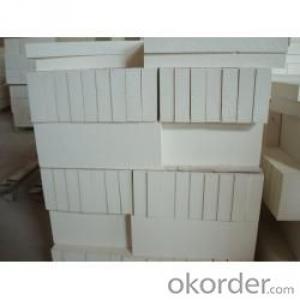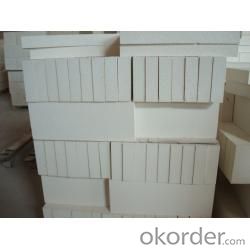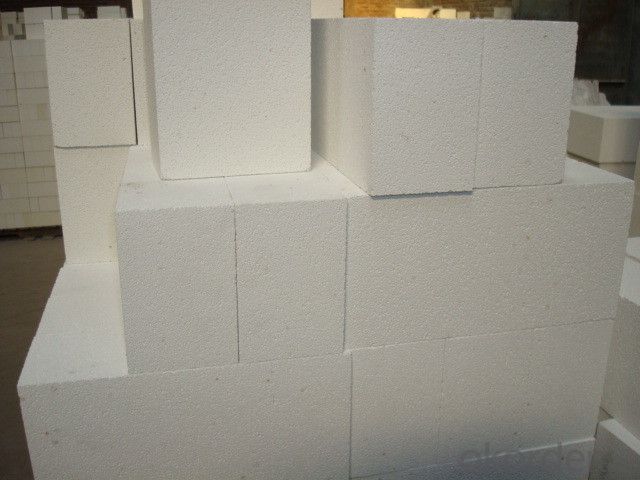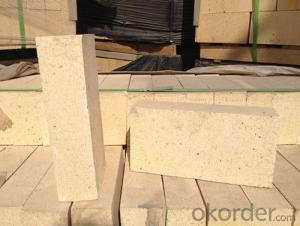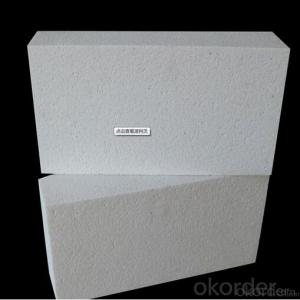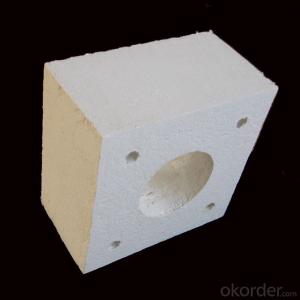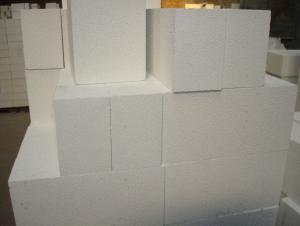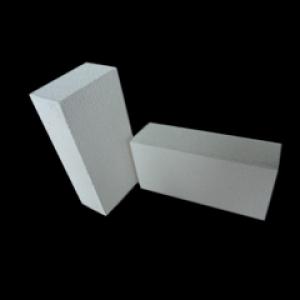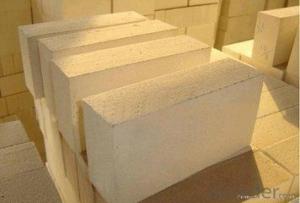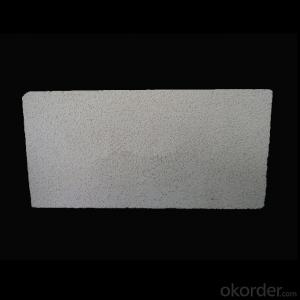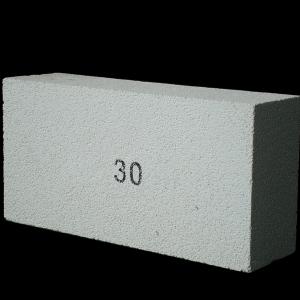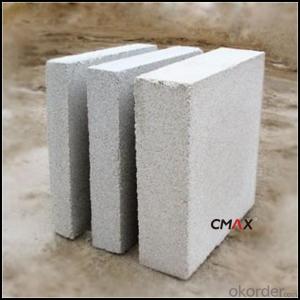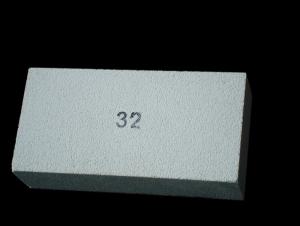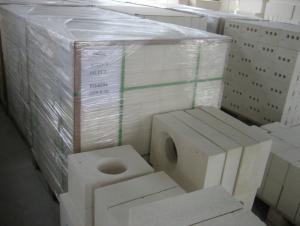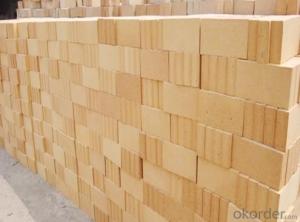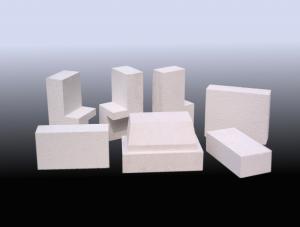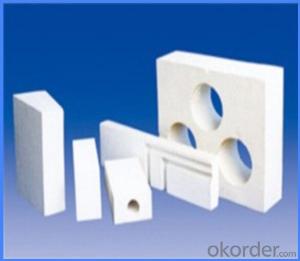High Quality Lightweight Insulating Fire Brick
- Loading Port:
- China main port
- Payment Terms:
- TT or LC
- Min Order Qty:
- 3 m.t.
- Supply Capability:
- 10000 m.t./month
OKorder Service Pledge
OKorder Financial Service
You Might Also Like
Thermal Insulation Fire Clay Brick
CNBM conforms strictly to the requirements of ISO 9000 quality control system during the production. MSDS is also available if you want. The thermal insulation fire clay brick meet with the requirements of ASTM & JIS standards. So please stay cool with our quality.
Application
Insulating Fire Brick are used for the lining of converter, alternating current arc furnace, direct Current arc furnace and the ladle slag line, etc.
Company Advantage
(1)Long Insulating Fire Brick manufacture history: 25 years manufacturer
(2)Advanced equipment
(3)Diversification of production standards: ISO ANSI FEPA JIS ASTM
(4)Flexible payment: T/T L/C D/P D/A
(5)Professional marketing team and after-sale service
(6)Free sample
Insulating Fire Brick main feature:
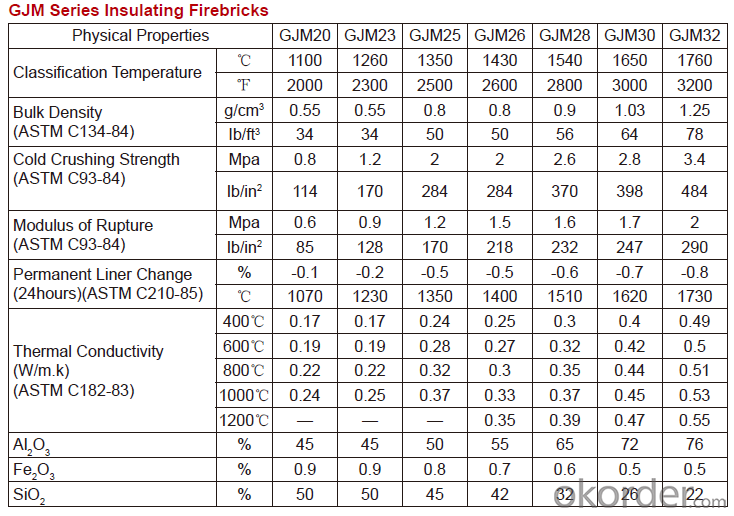
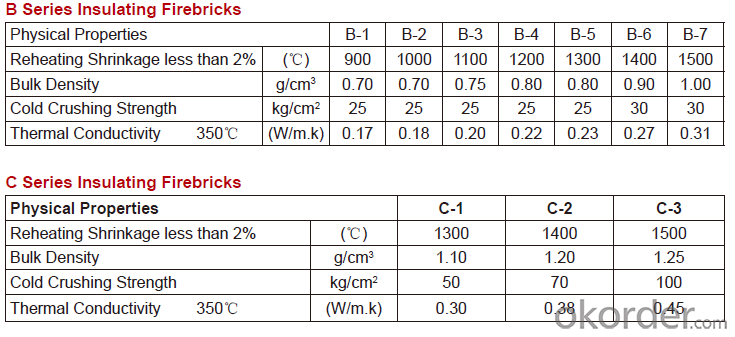
Equipment
1 unit of Ceramic Abrasive (SG Abrasive) pilot production line
2 units of Compact grain Abrasive pilot production lines
1 unit of high-end coated abrasives (abrasive cloth) production line
2 units of Boron Carbide production lines
3 large flexible crushing and sieving lines for grit production lines
2 units of 2000KVA furnaces for Boron Carbide fusion
6 units of 5000KVA-10000KVA dumping type electric arc furnaces for Brown Fused Alumina fusion
FAQs
Q1 What’s the transport method?
A1 FCL delivery goods with wooden pallet or wooden case by sea; If LCL delivery, must with wooden case; Sometimes need open top, flat rack or bulk cargo.
Q2 What’s the required payment term?
A2 Generally 30% TT as the prepayment, 70% TT before delivery. If need, 100% Irrevocable Letter of Credit or negotiation.
Q3 Which country are our products exported to?
A3 Apart from entire Chinese market, the US, Russia, Japan, Korea, Australia and some Southeast Asian Nations.
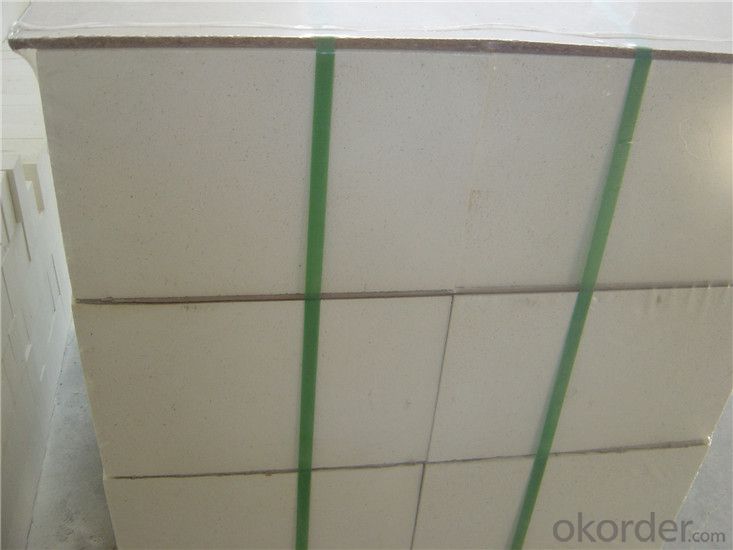
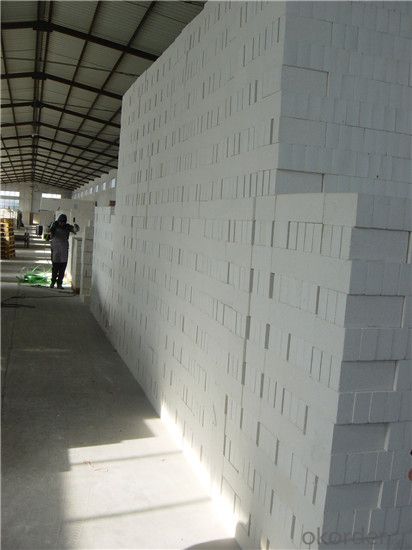
- Q: Can insulating fire bricks be used as a lining material for boilers?
- Yes, insulating fire bricks can be used as a lining material for boilers. Insulating fire bricks are made from lightweight refractory materials that have high insulating properties. These bricks are designed to withstand high temperatures, making them suitable for use in boilers where temperatures can reach up to several hundred degrees Celsius. The insulating properties of these bricks help to reduce heat loss, improving the energy efficiency of the boiler. Additionally, insulating fire bricks are resistant to thermal shock, which is crucial for withstanding the rapid temperature changes that occur in boilers. Overall, insulating fire bricks are a suitable choice for lining boilers due to their excellent insulating properties and ability to withstand high temperatures.
- Q: What is mullite insulation brick?
- Mullite brick, according to different density can be divided into: lightweight mullite brick and heavy mullite brick;
- Q: Can insulating fire bricks be used in refractory lining applications?
- Yes, insulating fire bricks can be used in refractory lining applications. Insulating fire bricks are made from lightweight materials that have high insulating properties, such as clay or silica. These bricks are designed to provide excellent thermal insulation, reducing heat loss and improving energy efficiency in high-temperature applications. In refractory lining applications, insulating fire bricks are commonly used to line the walls, floors, and roofs of furnaces, boilers, kilns, and other industrial equipment. They are effective in preventing heat transfer to the surrounding environment and maintaining the desired temperature inside the equipment. Insulating fire bricks are also resistant to thermal shock, meaning they can withstand rapid changes in temperature without cracking or failing. This makes them suitable for applications where the equipment goes through frequent heating and cooling cycles. Furthermore, insulating fire bricks have low thermal conductivity, which means they can effectively limit heat transfer between different areas of the refractory lining. This helps to prevent hot spots and temperature imbalances, ensuring uniform heat distribution throughout the equipment. Overall, insulating fire bricks are a versatile and effective choice for refractory lining applications, providing excellent thermal insulation, resistance to thermal shock, and uniform heat distribution.
- Q: Can insulating fire bricks be used for insulation in autoclaves?
- Yes, insulating fire bricks can be used for insulation in autoclaves. Insulating fire bricks are designed to have low thermal conductivity, which means they can effectively retain heat and withstand high temperatures. Autoclaves require insulation to maintain a consistent temperature and pressure, and insulating fire bricks can provide excellent insulation properties in these demanding conditions. Additionally, their high strength and durability make them suitable for withstanding the intense heat and pressure cycles that occur in autoclaves. Overall, insulating fire bricks are a reliable and effective choice for insulating autoclaves.
- Q: What is the typical lifespan of an insulating fire brick?
- The typical lifespan of an insulating fire brick can vary depending on various factors such as the quality of the brick, the temperature it is exposed to, and the frequency of thermal cycling. However, on average, insulating fire bricks can last anywhere from 5 to 20 years.
- Q: Can insulating fire bricks be used in the construction of lime production linings?
- Yes, insulating fire bricks can be used in the construction of lime production linings. Insulating fire bricks are designed to have low thermal conductivity, which makes them excellent for applications where heat insulation is required. In lime production, high temperatures are required for the calcination process. Using insulating fire bricks in the construction of lime production linings helps to reduce heat loss and improve energy efficiency. Additionally, insulating fire bricks are lightweight and easy to handle, which makes them suitable for lining various parts of lime kilns and other equipment used in the lime production process. Overall, using insulating fire bricks in lime production linings can help to optimize the production process and improve the overall performance of lime production facilities.
- Q: What is the weight of insulating fire bricks?
- The weight of insulating fire bricks can vary depending on the specific type and size, but on average, they typically weigh between 2.5 to 3.5 pounds per brick.
- Q: Do insulating fire bricks emit any harmful substances when heated?
- When heated, insulating fire bricks do not emit any harmful substances. These bricks are composed of materials like alumina, silica, and other refractory substances that are renowned for their ability to withstand high heat and chemical reactions. When subjected to elevated temperatures, these bricks do not discharge any toxic fumes or gases. Their construction is specifically engineered for use in a variety of high-temperature settings, including kilns, furnaces, and fireplaces, where they can endure extreme temperatures without the release of harmful substances. Consequently, insulating fire bricks are deemed safe for utilization and do not present any health hazards when heated.
- Q: Can insulating fire bricks be used in the construction of brick kilns?
- Yes, insulating fire bricks can be used in the construction of brick kilns. These fire bricks are designed to withstand high temperatures and provide excellent insulation, making them ideal for lining the walls and floors of brick kilns. They help to retain heat, improve energy efficiency, and protect the kiln structure from thermal stress.
- Q: Do insulating fire bricks have any insulating properties when wet?
- Insulating fire bricks do have some insulating properties when wet, but their effectiveness is significantly reduced compared to when they are dry. When wet, the water fills the pores in the bricks, which increases their conductivity and reduces their ability to trap heat or cold. This means that the insulating properties of the bricks will be compromised to some extent when they are wet. Therefore, it is advisable to ensure that insulating fire bricks are kept dry in order to maintain their optimal insulating capabilities.
Send your message to us
High Quality Lightweight Insulating Fire Brick
- Loading Port:
- China main port
- Payment Terms:
- TT or LC
- Min Order Qty:
- 3 m.t.
- Supply Capability:
- 10000 m.t./month
OKorder Service Pledge
OKorder Financial Service
Similar products
Hot products
Hot Searches
Related keywords
